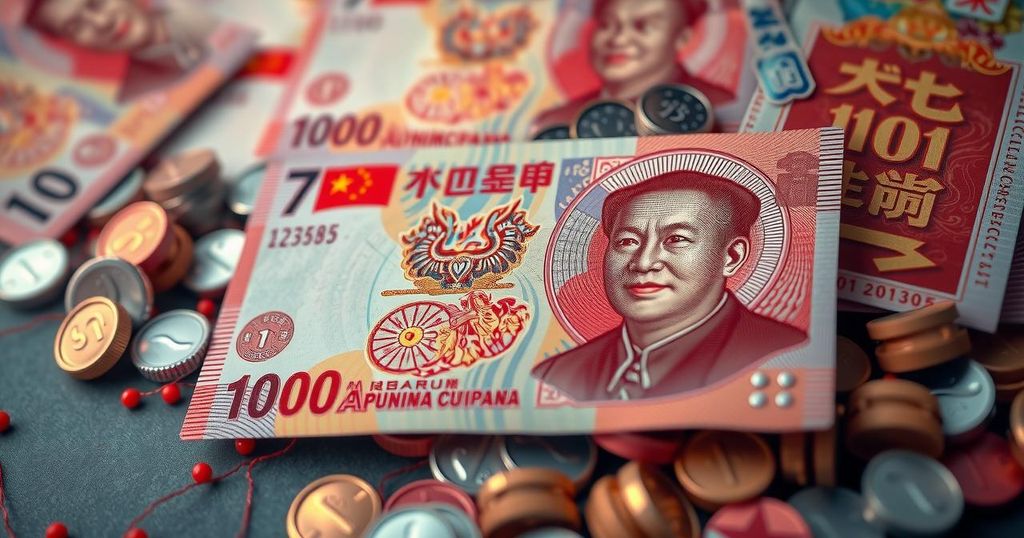Trump’s Tariff Threats Cause Chinese Yuan to Plummet to 15-Month Low
President-Elect Donald Trump’s tariff threats against China have triggered a significant decline in the value of the Chinese yuan, reaching its lowest point in 15 months. A proposed 10% tariff on Chinese imports is causing investors to shift their strategies amidst fears of further depreciation of the currency, highlighting the broader implications for international trade and market stability.
The recent election of President-Elect Donald Trump has created notable disruptions in international markets, particularly influencing the value of the Chinese yuan. Anticipated tariff policies, specifically a potential 10% levy on all Chinese imports aimed at combating the importation of narcotics, have initiated a sharp decline in the currency’s value. This decline has propelled the yuan to a 15-month low, reflecting significant market apprehension over future U.S.-China trade relations.
Both the onshore and offshore variants of the yuan have borne the brunt of this situation, with both hitting historic lows amid fears of punitive tariffs. The People’s Bank of China (PBOC) adjusted its fixing rate to 7.1996 per dollar on Tuesday, and analysts insist that maintaining this critical threshold is essential. Khoon Goh, head of Asia Research at Australia & New Zealand Banking Group Ltd., emphasized the gravity of the situation by stating, “Given the sentiment, it’s important for the 7.20 fix level to hold, as any fix set higher would trigger more immediate dollar buying.”
This depreciating trend values the yuan as one of Asia’s weakest currencies, prompting investors in the region to convert their assets into dollars as a protective measure. This scenario, exacerbated by other economic factors, has reverted Chinese bond yields and its national currency to levels not seen since before recent stimulus measures were enacted. While prior government actions yielded temporary relief, investors are calling for additional steps to invigorate the market.
The ultimate impact of Trump’s tariff threats on international economic relations remains uncertain, as these declarations may serve as leverage for the U.S. in discussions regarding illegal migration and drug trade with neighboring countries like Mexico and Canada. Thus, while market responses to Trump’s presidency have proven immediate and substantial, the long-term economic implications await further clarity.
The Chinese yuan has been under significant pressure from currency market fluctuations following President-Elect Donald Trump’s electoral success, particularly due to fears surrounding proposed tariffs aimed at curbing drug imports. As the U.S. government considers imposing a 10% tariff on all Chinese goods, the potential repercussions are creating ripples throughout the forex market, prompting a dramatic depreciation of the yuan. This phenomenon illustrates the interconnectedness of international trade policies and currency valuations, whereby political decisions lead to tangible economic consequences across the globe.
In summary, the election of President-Elect Donald Trump has initiated a precarious period for the Chinese yuan, with potential tariffs on imports exacerbating its decline to a 15-month low. This situation signals serious implications for Asian investors, compelling them to evaluate risk management strategies in light of possible further depreciation. The responses from the PBOC and the global markets will be crucial in navigating this evolving economic landscape. Ultimately, the tangible effects of these tariff threats remain to be fully realized moving forward.
Original Source: news.bitcoin.com








Post Comment